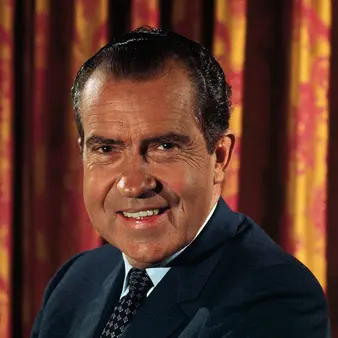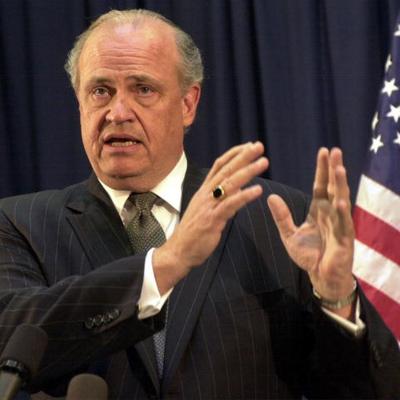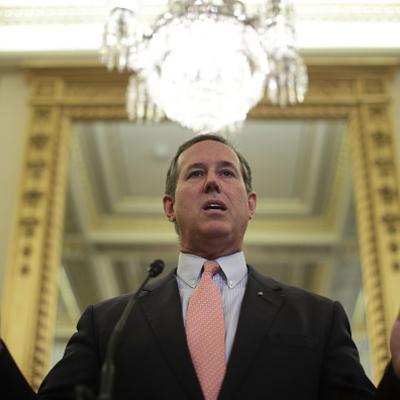What Was Gerald Ford's Net Worth?
Gerald Ford was an American politician who had a net worth of $7 million at the time of his death in 2006. That's the same as around $11 million in today's dollars after adjusting for inflation. Gerald Ford was the 38th President of the United States, serving from 1974 to 1977. Prior to his presidency, Ford served as the 40th Vice President of the United States from 1973 to 1974 under President Richard Nixon. He became the Vice President after Spiro Agnew resigned and was the first person appointed to the position under the 25th Amendment. Ford is the only person to serve as President and Vice President without being elected by the Electoral College.
During his presidency, Gerald signed the Helsinki Accords during the Cold War. He dealt with a poor economy with inflation and a recession. He made a controversial presidential pardon to Richard Nixon for his role in the Watergate scandal. Ford's term marked an increased role for Congress and Presidential powers being curbed. In 1976, he lost narrowly to Jimmy Carter for reelection. Prior to entering the White House, he served as Representative from Michigan's 5th congressional district for nearly 25 years, including eight years as the Republican Minority Leader. Gerald Ford died on December 26, 2006, at the age of 93.
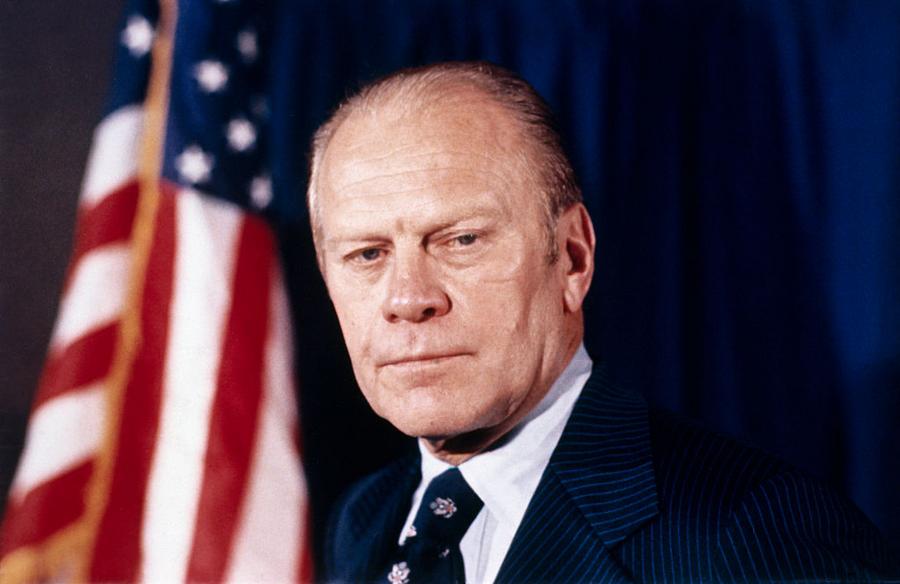
8/13/1974-Washington, DC: President Gerald Ford (via Getty)
Early Life
Gerald Ford was born Leslie Lynch King Jr. on July 14, 1913, in Omaha, Nebraska. His parents were Dorothy Ayer Gardner and Leslie Lynch King Sr. His mother separated from his father just sixteen days after Gerald's birth. She took Ford to Oak Park, Illinois, where they lived with her sister and brother-in-law. She then moved to her parents' house in Grand Rapids, Michigan, and divorced Lynch King Sr. in December 1913. Gardner married Gerald Rudolf Ford two years later. Gerald was never formally adopted by his stepfather, but his mother did legally have his name changed to Gerald Ford Jr.
During his youth, Ford was involved in the Boy Scouts of American and earned that program's highest rank, Eagle Scout. He attended Grand Rapids South High School, where he was a star athlete and captain of the football team. In 1930, he was selected to the All-City team of the Grand Rapids City League, attracting the attention of many college recruiters. Gerald attended the University of Michigan, where he played center, linebacker, and long snapper for the school's football team. He graduated with a B.A. in economics in 1935. He turned down offers from the Detroit Lions and Green Bay Packers to join the NFL and instead took a job as a coach at Yale University. He then enrolled at Yale Law School and graduated in May 1941. He then enlisted in the U.S. Navy after the 1941 attack on Pearl Harbor. He applied for sea duty and spent several years on board the USS Monterey. Gerald was honorably discharged in February 1946 and received a number of military awards.
Career
In 1946, Ford became active in local Republican politics. He later campaigned for a seat in the House of Representatives and won in 1948. He won the seat for Michigan's 5th congressional district, which he held from 1949 to 1973. During this time, he developed a reputation as a negotiator and reconciler. He was also a member of the House Appropriations Committee and the Defense Appropriations Subcommittee. Ford described himself as being moderate in domestic affairs, an internationalist in foreign affairs, and a conservative in fiscal policy.
In 1963, President Lyndon B. Johnson appointed Ford to the Warren Commission, a special task force set up to investigate the assassination of President John F. Kennedy. Gerald was assigned to prepare a biography of the accused assassin, Lee Harvey Oswald, and worked closely with the FBI throughout his time on the Commission.
From 1965 to 1973, Ford served as the minority leader in the House of Representatives. In 1973, Spiro Agnew resigned from the office of vice presidency. Then President Nixon sought advice from Congress for a replacement, and Gerald was the unanimous choice. Ford became the first vice president to assume the office via the provision in the 25th Amendment. He also assumed the office during the Watergate scandal. When Nixon resigned as a result of the scandal, Ford automatically assumed the presidency on August 9, 1974. He became the only person to become the president without having been elected to the presidency or the vice presidency. He then nominated New York Governor Nelson Rockefeller to fill the vice presidency position.
During Ford's brief administration, he replaced all the members of the Nixon Cabinet except Secretary of State Henry Kissinger and Secretary of the Treasury William E. Simon. His dramatic reorganization of the Cabinet has come to be known as the "Halloween Massacre" by political commentators. Ford focused heavily on the economy while he was president. He presided over the worst economy of four decades since the Great Depression. In terms of foreign policy, he signed the Helsinki Accords, which marked a move towards Détente in the Cold War. Over the nine months that he was in office, the U.S. involvement in the Vietnam War essentially ended.
In 1976, Ford defeated Ronald Reagan for the Republican nomination but then lost to Democrat Jimmy Carter in the presidential election. Gerald remained active in the Republican Party in the years after his presidency though his moderate view on social issues began to put him more and more at odds with the more conservative members of his party.
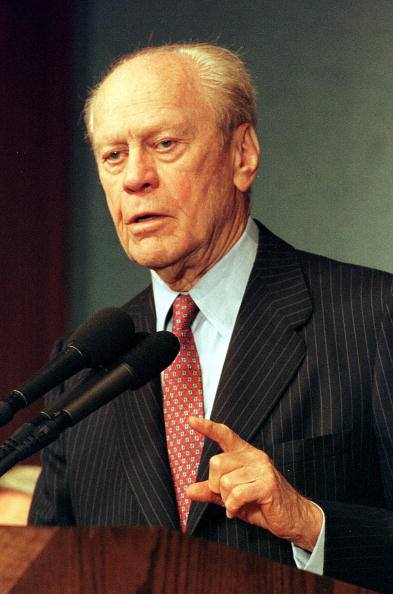
Alex Wong / Hulton Archive
Personal Life and Death
On October 15, 1948, Ford married Elizabeth Bloomer at Grace Episcopal Church in Grand Rapids. In 1950, they had their first child, a son named Michael. In 1952, they welcomed a second son named John. In 1956, they had a third son named Steven and then welcomed a daughter named Susan in 1957.
In 1949, Ford was initiated into Freemasonry. His three younger brothers also joined the organization. He was made a 33 Scottish Rite Mason in 1962. In April 1975, Gerald was elected by unanimous vote Honorary Guard Master of the International Supreme Council. He served in that role until January 1977. He was also a member of the Shriners and the Royal Order of Jesters.
Ford died on December 26, 2006, at his home in Rancho Mirage, California, of arteriosclerotic cerebrovascular disease and diffuse arteriosclerosis. At the time of his death, he was the longest-lived U.S. president at 93 years and 165 days. On December 30, 2006, Gerald became the 11th U.S. president to lie in state in the Rotunda of the U.S. Capitol. A memorial service was held at the National Cathedral in Washington, D.C., on January 2, 2007. He was then interred at the Presidential Museum in Grand Rapids, Michigan. In 2011, the State of Michigan commissioned and submitted a statue of Ford to the National Statuary Hall Collection.


